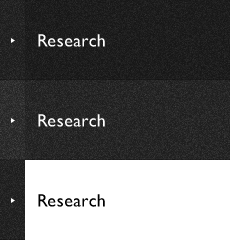
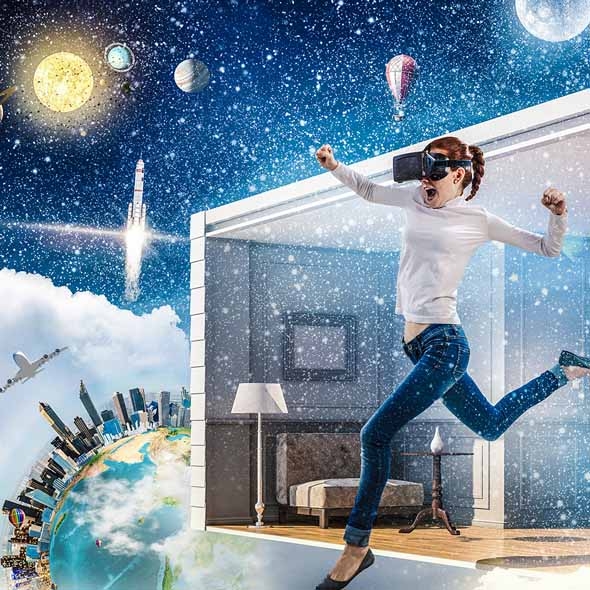
Following Part 1 of the Living in a world with COVID-19 series, which showcased recovery efforts from the perspectives of medicine and engineering, this Part 2 covers the latest research on adapting to the new lifestyles and stresses brought on by COVID-19.
Raising the fidelity of VR and expanding the experiences it can provide
Shoichi Hasegawa, Associate Professor, Laboratory for Future Interdisciplinary Research of Science and Technology, Institute of Innovative Research
Q1: Tell us about your research.
My area of expertise is virtual reality (VR). By wearing a dedicated device such as an HMD (Head Mounted Display), you can experience a VR space created by a computer as if it were reality. But at present, only a small portion of what is in real space can be reproduced in VR. For example, in product development, virtual experiments are performed by computer simulation. However, it is then necessary to create and verify with mockups. This is because it is not possible to confirm the operability and texture of a product in VR. To overcome this challenge, my lab is conducting research on both areas, simulation and human interfaces.
The big difference between simulations and VR is that VR enables people to experience the VR space in real-time. However, because the performance and computing capacity of computers are limited, when working to create a real-time and highly realistic (i.e., high fidelity) experience, it is important to determine what information is truly necessary for humans among the enormous amount of information available. Furthermore, it is also important to determine what information is used by humans as a basis for recognizing real space and being active in that space. My group is focusing on research and development of mathematical models for that purpose.
Q2: COVID-19 has made it necessary to introduce new work and life styles. What challenges have arisen in your field?
Prior to COVID-19, even when telecommunicating seemed convenient, we spent the time and money to go to meet people directly by plane or train. The main reason for this was that telecommunication performance was low, and we did not have a VR space comparable to real space. Therefore, I have focused on pursuing reality in VR space. However, due to COVID-19, we were suddenly forced to use telecommunications, and with urgency. Presentations at academic conferences are usually given by one speaker, with the rest of the participants being audience members. As such, there is no problem holding presentations online. The challenge, however, is how poster sessions and social gatherings normally held at venues can be held online. For example, in the case of a poster session, only interested listeners will approach the presenter to ask questions. Conventional telecommunications do not have such a feature. Therefore, we worked hard to develop "Binaural Meet" (Figure 1) for holding poster sessions online. A key aspect of Binaural Meet is that it does not require any special devices, such as an HMD, so the software can be easily used by anyone.
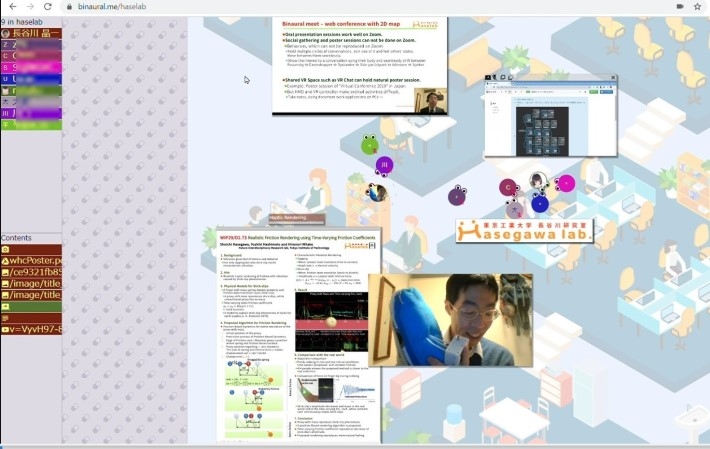
Figure 1. "Binaural Meet" is a conference system that operates in a two-dimensional space, allowing you to move your avatar or direct your gaze in a specific direction using the mouse.
Unlike typical telecommunication systems, all participants can speak freely. By wearing headphones, the user can sense the direction from which a voice is coming. In Binaural Meet, the positions of avatars are mapped in a two-dimensional space, and the volume of voices changes in real-time according to the distance between avatars. The software is able to replicate poster sessions and social gatherings. You can try the application yourself at Binaural Meet.
In developing this software, we reaffirmed the importance of body position and gaze when participating in and leaving conversations. The true appeal of VR research is identifying essential elements and pursuing reality within limited resources. In my research, I realized that the same is true for communication. Indeed, the required functions differ greatly depending on the type of communication.
Q3: What is your future outlook on this research?
In the future, I want to realize a system in which a computer constantly recognizes us and optimally controls space for both reality and VR. For example, smartphones today know the owner's current location and provide information accordingly; however, they can only display information on the screen. I hope to realize a computer system that can do things such as protect the owner from traffic accidents or directly guide our bodies in sports.
Message from Associate Professor Shoichi Hasegawa
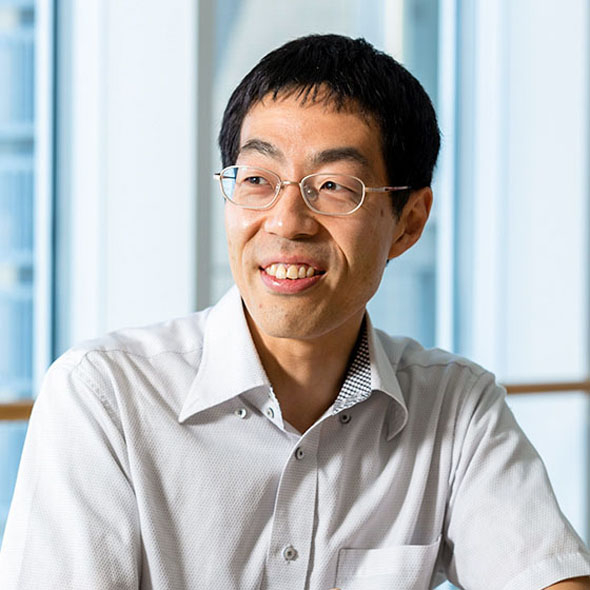
Shoichi Hasegawa,
Associate Professor,
Laboratory for Future Interdisciplinary
Research of Science and Technology,
Institute of Innovative Research
Message from Associate Professor Shoichi Hasegawa
As I always say to the students in my laboratory, I sincerely hope that the younger generation will experience "conducting research," regardless of whether or not they pursue a career as researchers. Research is the act of giving deep thought to a certain topic and working to obtain your own answer. Instead of competing with others, I believe that there are enormous benefits in immersing yourself in a topic that you want to explore. I hope that as many young people as possible will experience the excitement of research.
Contributing to urban development by creating tourism to fit new lifestyles
Akira Soshiroda, Associate Professor, School of Environment and Society
Q1: Tell us about your research.
My expertise is in "tourism destination planning," which is a fusion of tourism studies and city planning. Stated simply, my research focuses on urban development achieved by promoting tourism, and on urban development in tourist areas. One characteristic of tourism-related research fields is that they are interdisciplinary areas. Urban engineering fields, such as space design, are not sufficient on their own. Instead, we must adopt a multifaceted viewpoint incorporating various perspectives such as psychology, which includes marketing and the expectations of tourists, economics, which includes the extent of the economic ripple effect on the region, management studies for facilities such as hotels, and cultural anthropology. I am engaging in the broad study of these disciplines and borrowing wisdom from experts in other fields, and am considering urban planning and regional development, while also reflecting on the development history of tourist destinations and resort areas.
Q2: COVID-19 has made it necessary to introduce new work and life styles. What challenges have arisen in your field?
The tourism industry has been hit hard by COVID-19. I am paying close attention to how travel and tourist destinations will change once the pandemic has ended, and I am engaging in discussions with other researchers at academic conferences. One element of tourism which is attracting great attention due to expected changes is group tourism, such as school trips. The purpose of a school trip is to study. Therefore, there is an emerging viewpoint that traveling to distant locations is not necessary, which creates the possibility that the form of school trips will change. Group travel in general is also expected to become increasingly personalized. Additionally, the tourism industry is expected to switch strategies to increasing domestic demand in an effort to avoid overdependence on inbound tourism. Moreover, COVID-19 has increased the market for "workations" and nomad working, which will likely cause an increase in long-term stay vacations. Even after the pandemic has ended, I believe that people will have a strong desire to work in a comfortable environment. Accordingly, I expect that "tourism to fit new lifestyles" will increase in the future.
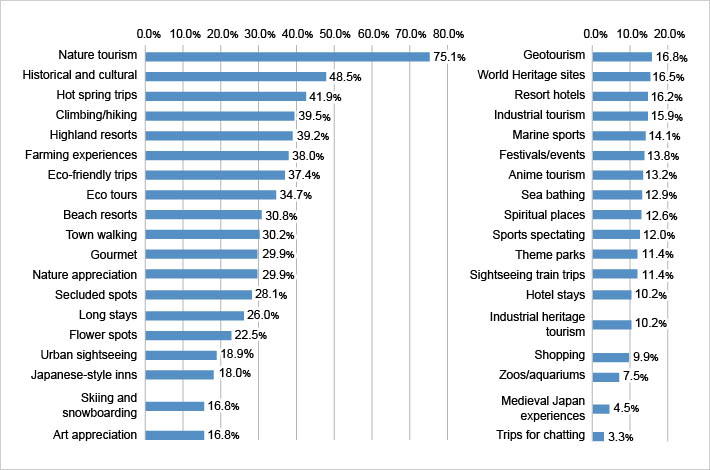
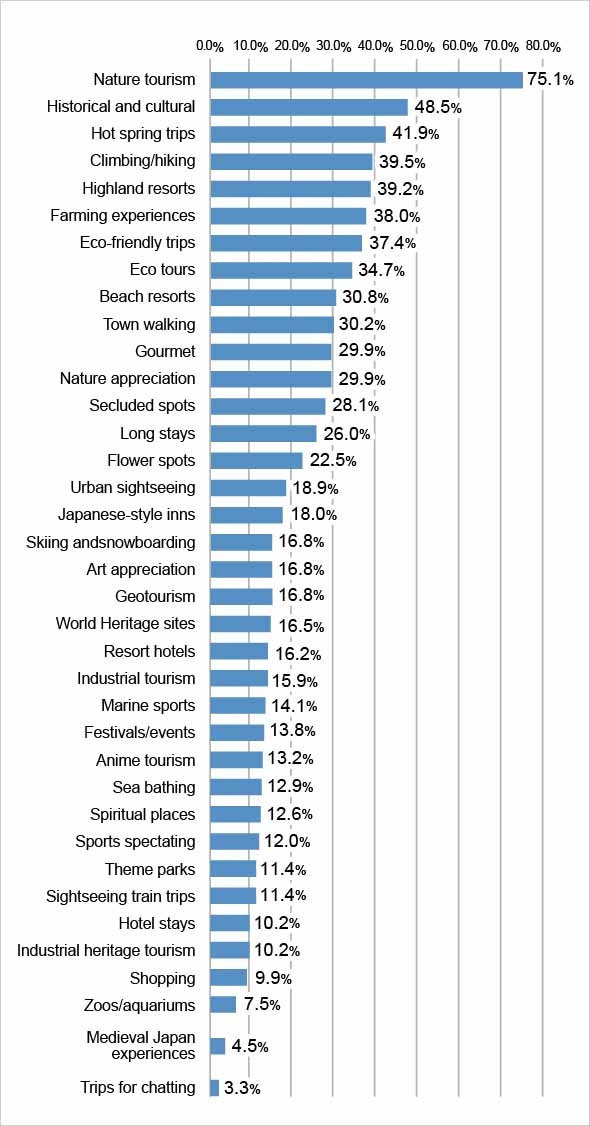
Figure 2 Urgent survey on changes in tourism behavior post-COVID-19 - Tourism desired in the future
Period: May 18-30, 2020
Target: Members of the Japan Institute of Tourism Research (total of 1,083 full-time and part-time members as of March 31, 2020)
Note 1) The choices in this question are from the annual travel report issued by the Japan Travel Bureau Foundation. This was done to enable comparison of the data.
Note 2) Free responses provided under other tourism were not included.
From the results of an urgent survey (preliminary data) in the COVID-19 Special Project by the Japan Institute of Tourism Research.
If tourism is no longer transient due to these changes, I believe that there will be even greater demand for a tourist code of conduct that shifts away from the idea that you can leave your sense of shame at home when traveling. I expect that this will lead to improvement of issues related to overtourism, such as excessive crowding at tourist destinations and resort areas. Furthermore, from the perspective of safety and security, I believe that future trends will shift from wide-ranging and superficial tourism in which many different places are visited to specific and in-depth tourism, in which familiar places are visited many times.
Q3: What is your future outlook on this research?
For the time being, I plan to collect and analyze a large amount of case data on travel agencies and tourist destinations to determine whether the current changes in tourism are transient or will continue even after the COVID-19 pandemic has ended. Based on those results, I will consider future countermeasures and make proposals. Additionally, even after the pandemic has ended, there are some areas in which technology will continue to advance and spread. Some examples include services related to telework and VR, safe and secure bicycle rentals and electric vehicles with low environmental impact. I plan to examine how to utilize such technologies for promoting tourism. I will also continue to investigate the code of conduct for tourists and propose an ideal form of tourist destinations for coexistence and co-prosperity among tourists and local residents.
Message from Associate Professor Akira Soshiroda
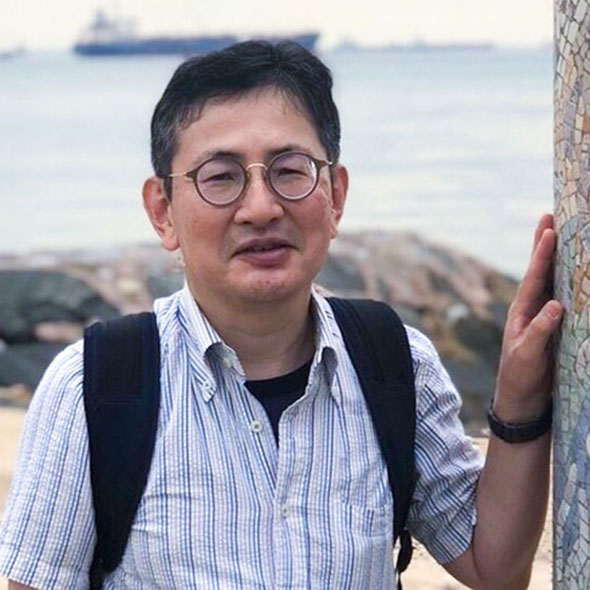
Akira Soshiroda,
Associate Professor,
School of Environment and Society
Message from Associate Professor Akira Soshiroda
For young people who are aiming to become researchers, I would strongly advise them not to embrace popular research themes without first engaging in sufficient thought. Instead, I hope that they will select a topic after serious consideration regarding their true aspirations.
Personally, I became interested in tourism research about 40 years ago when I was a student at Tokyo Tech. Acting upon this interest, I entered the laboratory of the late Professor Takasuke Watanabe, a pioneer of tourism scholars. At that time, tourism studies was not well recognized as a research field. However, Tokyo Tech has a long tradition of supporting interdisciplinary fields. When I was a student, there was a department dealing with interdisciplinary fields called the Department of Social Engineering. In recent years, tourism studies has finally started to attract attention in Japan. This has coincided with the concept of using tourism for regional promotion in Japan, the attraction of foreign tourists, and a marked increase in tourism. In this way, the future is unpredictable. Honestly, I never expected tourism to receive as much attention as it does now, but I am truly happy that I chose this path. As a researcher, delving deeply into a single theme takes a very long time—as many as 40 or 50 years. Therefore, I hope that young people will embrace a challenge which they truly enjoy.
Establishing processes for coping with stress and living positively
Mitsue Nagamine, Associate Professor, Institute for Liberal Arts
Q1: Tell us about your research.
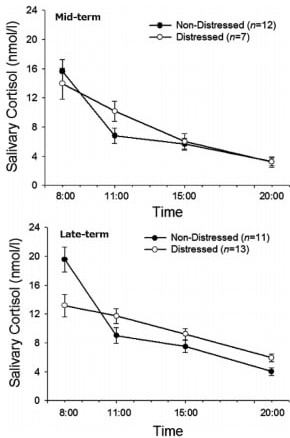 Figure 3. Diurnal changes in salivary cortisol secretion in two groups, second trimester and third trimester of pregnancy. Cortisol levels are high in the morning and decrease during the day. When experiencing chronic stress, this change becomes less noticeable. Reprinted with permission from the Japanese Journal of Physiological Psychology and Psychophysiology 36, 5-14 (2018), Figure 3.
Figure 3. Diurnal changes in salivary cortisol secretion in two groups, second trimester and third trimester of pregnancy. Cortisol levels are high in the morning and decrease during the day. When experiencing chronic stress, this change becomes less noticeable. Reprinted with permission from the Japanese Journal of Physiological Psychology and Psychophysiology 36, 5-14 (2018), Figure 3.
I conduct research on stress. Currently, I am working on four main topics, the first of which is hormones. When people feel stress, they secrete the stress hormone cortisol. We know that aspects of cortisol secretion differ depending on whether the stress is acute or chronic (Figure 3). I am studying how the body is affected by changes in the diurnal endocrine rhythm due to chronic stress.
 Figure 3. Diurnal changes in salivary cortisol secretion in two groups, second trimester and third trimester of pregnancy. Cortisol levels are high in the morning and decrease during the day. When experiencing chronic stress, this change becomes less noticeable. Reprinted with permission from the Japanese Journal of Physiological Psychology and Psychophysiology 36, 5-14 (2018), Figure 3.
Figure 3. Diurnal changes in salivary cortisol secretion in two groups, second trimester and third trimester of pregnancy. Cortisol levels are high in the morning and decrease during the day. When experiencing chronic stress, this change becomes less noticeable. Reprinted with permission from the Japanese Journal of Physiological Psychology and Psychophysiology 36, 5-14 (2018), Figure 3.
Note that stress is not always a bad thing. In essence, stress is an adaptive response to change. The researcher Hans Selye, who proposed a model of stress in 1936, described stress as a general adaptation syndrome. Accordingly, for about 10 years, I have been working on my second topic, which is the psychological and physiological effects resulting from how stress is perceived. In fact, it has been shown that psychological and physiological effects differ greatly depending on whether stress is perceived as negative or positive. I aim to clarify how our approach to stress affects our physical and mental health, and then link those results to education on stress management.
My third topic is decision-making under special circumstances such as bank transfer fraud. When we are forced to make a sudden decision in a situation of intense anxiety or stress, we have difficultly making the correct decision. This can lead to harm. Therefore, in order to reduce the harm caused by fraud, I am studying the effects of anxiety and time urgency on the decision-making process, and researching what preventive measures should be taken.
My fourth topic is stress management in the event of a life-threatening event, such as a major earthquake or flood. In this research, I mainly focus on environmental factors and examine how information should be provided to reduce anxiety.
Q2: COVID-19 has made it necessary to introduce new work styles and life styles. What challenges have arisen in your field?
Everyone feels anxiety and stress when adapting to new work and life styles. The important thing is not to prolong the stress. I am focusing on the concept of "resilience" as a keyword. Resilience means elasticity, restorative force, and ability to recover. Here, I use the term to mean "suppleness of the mind and emotions." I believe that resilience is becoming more important as the COVID-19 pandemic drags on. It is said that the two main foundations of resilience are social connections and physical health. However, COVID-19 places heavy restrictions on social connections. Connecting online is one countermeasure, but some people lack access to such an online environment. Under these circumstances, finding the best way to maintain resilience is a major issue. Actually, the problem of social isolation has existed for some time. Furthermore, the number of people facing social isolation is increasing due to COVID-19. People are being asked to stay home in order to prevent the spread of infections. Still, in unfortunate circumstances such as child abuse and other forms of domestic violence, home may not be a safe and secure environment for some people. Therefore, it is necessary to consider a safe place for such vulnerable people and to foster more attention from surrounding people. Finally, it is becoming increasingly important to maintain and improve physical health, which is another foundation of resilience.
Q3: What is your future outlook on this research?
Cortisol has been shown to suppress the immune system. We must keep our immune systems strong so that we will not be infected with COVID-19, and so that our symptoms do not become serious even if we are infected. Therefore, I will continue conducting research on stress management; for example, the development of tools for monitoring physical and mental health to prevent chronic cortisol secretion. Through this research, I hope to create a society in which people can face stress with a positive attitude and manage it appropriately.
Message from Associate Professor Mitsue Nagamine
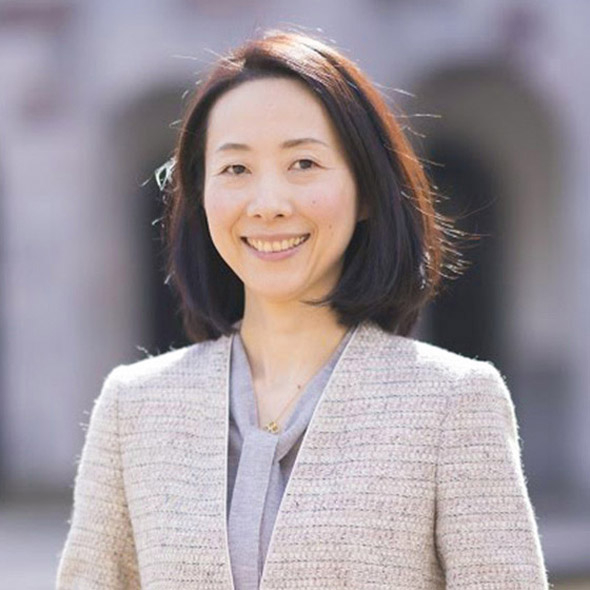
Mitsue Nagamine,
Associate Professor,
Institute for Liberal Arts
Message from Associate Professor Mitsue Nagamine
I was a senior at university when I first had the desire to study the interactions between the mind and body. I then started researching psychophysiology in relation to stress. The more research I conducted, the more I realized the complexity of the topic. At the same time, I felt an even greater desire to understand the interactions. I still feel the same way today. Currently, in addition to basic research, there is increasing applied research on topics such as measures to prevent bank transfer fraud. I am surprised at the breadth of the field. The majority of research consists of long-term challenges for which no immediate answer can be found. This may cause you to experience frustration on your journey. Nevertheless, perseverance will open up unexpected paths. I encourage young researchers to select topics which they find truly interesting and enjoyable and to diligently embrace challenges without rushing.
The Special Topics component of the Tokyo Tech Website shines a spotlight on recent developments in research and education, achievements of its community members, and special events and news from the Institute.
Past features can be viewed in the Special Topics Gallery.
. Any information published on this site will be valid in relation to Science Tokyo.












